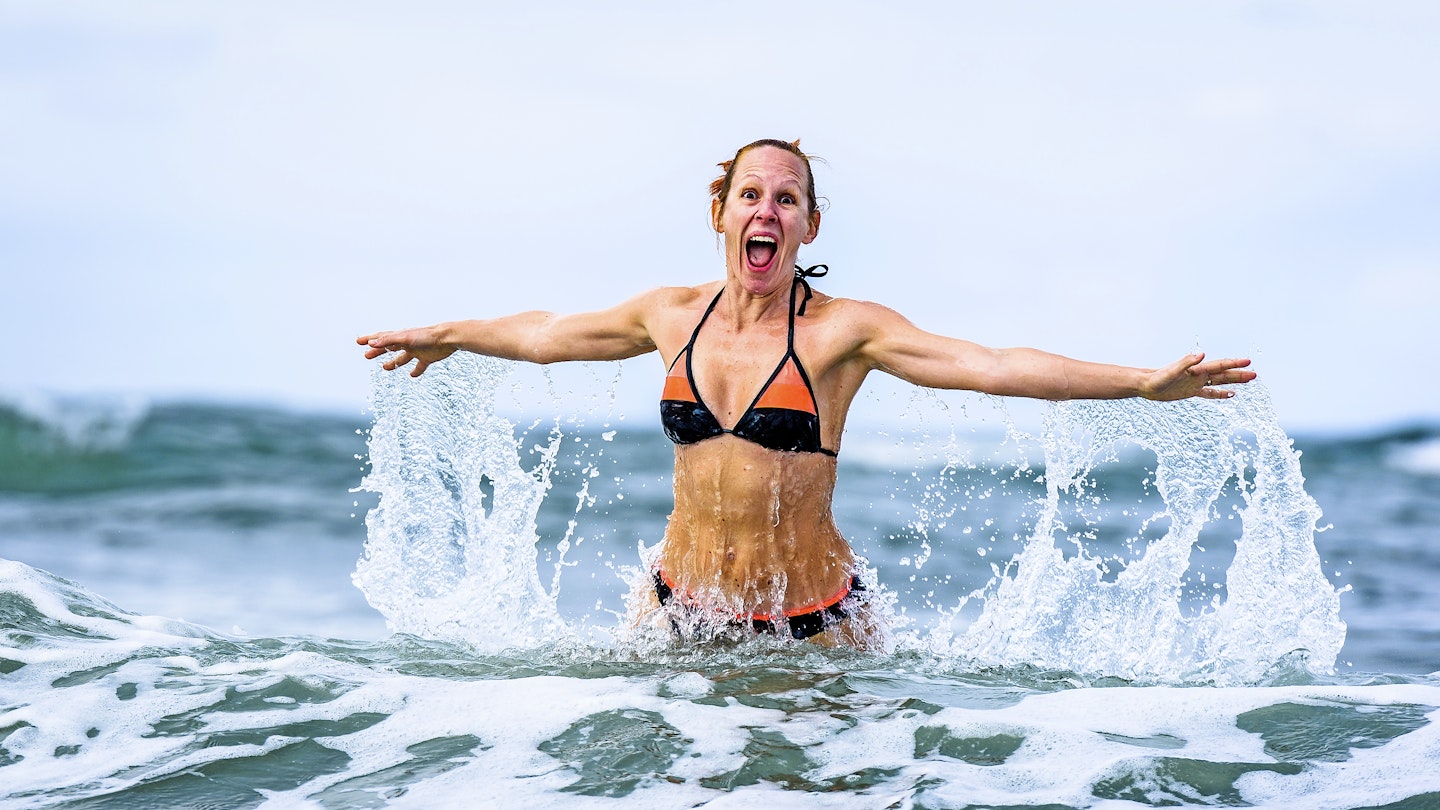Being in or near water can boost wellbeing and increase feelings of contentment. Here’s how to get your fix
It’s national Mental Health Awareness Week and the theme is nature and environment
With public pools closed throughout the pandemic, thousands of people discovered the life-changing joy of wild swimming.
Research suggests a 287 per cent increase in swimmers taking to the sea, lakes, lochs and rivers since March 2020.
While the challenges of the last year have left our collective mental health in crisis, nature has provided many with free therapy.
Dr Catherine Kelly, academic, wellbeing practitioner and author of Blue Spaces: How & Why Water Can Make You Feel Better, says: ‘It’s been a time of claustrophobia. Water represents freedom and openness.’
For nonswimmers, the good news is that being near open water is beneficial too.
While the connection between ‘green’ landscapes and mental health is well documented, researchers are increasingly intrigued by how ‘blue’ space induces a positive mood, reduces negative feelings, and helps us feel present, energised and connected.
Dr Kelly explains: ‘Many of us live in “red” mode — feeling stressed, worried and anxious. When the brain is in “blue” mode, we feel calm and mindful. There are physical, psychological and social factors linking water and wellbeing and the research is catching up with what many of us know instinctively — that there is a healing effect to looking at or being in water.’
Promising research is also emerging linking cold water swimming to reduced levels of depression and anxiety.
‘Cold water swimming releases endorphins and it’s neurologically impossible to be anxious while laughing,’ Dr Kelly says. ‘The sea gives us permission to play and have fun.’
We live in a frantic society and while the pandemic slowed us down, it brought new worries. The NHS is stretched and prescriptions for antidepressants and anti-anxiety medications are soaring.
Many of us are looking for coping strategies in the ‘five ways to wellbeing’ — be active, keep learning, give, take notice and connect. While time in blue spaces can tick every box, many wild swimmers are surprised to discover a thriving community at the shore.
‘It’s about more than water. It’s about belonging and friendship. Swimming can be a collective, bonding experience and this is what many people missed most in lockdown,’ Dr Kelly says. ‘Wild swimming groups across the country encourage and welcome newcomers without question of age, body size or ability.’
The furthest anyone in the UK lives from the sea is just 70 miles, but if you’re not able to get to the coast or visit local rivers and lakes, try a mindful bathing exercise at home. Create a relaxed atmosphere with bubbles and candles, let go of your worries and notice how your body feels as you breathe slowly, letting the water carry away your troubles.
Blue Spaces: How & Why Water Can Make You Feel Better by Dr Catherine Kelly PhD is available now.

‘I needed the sea’
Dr Kelly, 51, shares her story
‘As the sand slipped through my toes and the Atlantic ocean swept the shore, I could feel the sea healing me…
‘My mum Dympna was 47 when she died suddenly from a brain haemorrhage. Grief-stricken, I left London and took a job on the west coast of Ireland. I rescued a dog, Holly, and together we walked the shore every day. I swam and surfed, and the cold, salty sharpness of the sea shook me up and calmed me down. Sometimes I cried and the ocean swallowed my tears. Sometimes it lifted my mood and made me smile.
‘Now, my partner Alessandro and our sons Luca and Jacob and I live in Brighton. Sometimes I seek solitude by the sea, sometimes I need the joy of meeting friends for a swim. The water always makes me feel fit and well, present and at peace.’
How to dip your toes in...
- Remember, water can be dangerous. Know your limits, don’t swim out of your depth and always swim with a friend.
- If you’re new to sea swimming, swim at a beach with lifeguards.
- Pack warm clothes.
- Visit wildswimming.co.uk for advice and to join a friendly collective.
- Try paddleboarding, surfing, beach yoga, or walking along the shoreline, beside a canal, or along the edge of a lake or river. It’s as valuable to be beside water as it is to be in it. Enjoy, explore, relax!
Edited by Kim Willis
